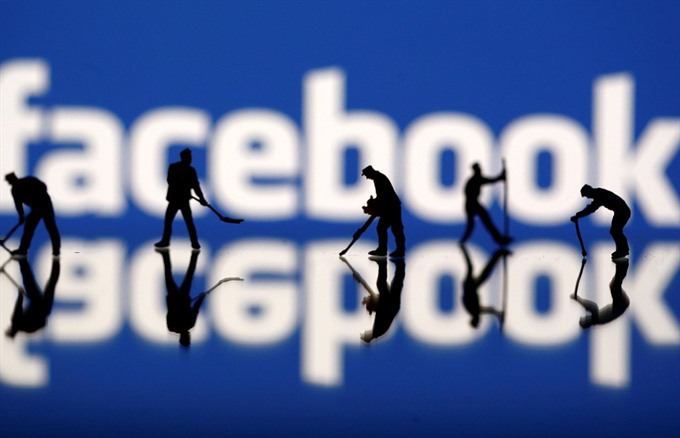The Facebook data scandal was a wake-up call to Viet Nam’s booming internet growth as experts voiced concerns over the oft-neglected threat of personal information leak.

The Facebook data scandal was a wake-up call to Viet Nam’s booming internet growth as experts voiced concerns over the often neglected threat of personal information leaks.
A conference on the digital economy and cybersecurity policy was held in Ha Noi on Thursday, just weeks after Facebook was accused of providing personal information of up to 50 millions users to UK-based data firm Cambridge Analytica.
They allegedly used it to target swing voters in the US 2016 presidential election.
Among all the discussions co-organised by the Viet Nam Digital Communications Association and the American Chamber of Commerce, privacy issues were high on the agenda.
According to Internet Live Stats report 2018, the number of internet users in Viet Nam last year reached 64 million people, thrusting the country into the top 20 internet users worldwide.
He said e-commerce, where people have to provide personal information like bank details when shopping online, was booming in Viet Nam.
Vietnamese e-commerce total revenue in 2016 shot up to more than US$5 billion while billions of dollars kept pouring into e-commerce start-ups and mergers and acquisitions deals.
The risk, however, was not minimal.
Public policy expert Nguyen Quang Dong from the Institute for Policy Studies and Media Development said what mattered now was how the data protection was practised in Viet Nam.
“I believe many have gone through the same situation, when you received an SMS advertising the airport taxi service the moment you just landed at Noi Bai (airport) and walked off the plane without even knowing how and why,” Dong said.
Viet Nam’s legal framework was still short of regulations on the purchase or hand-over of users’ personal data from one company to another, Dong said, adding the role of the justice system to handle dispute regarding data privacy was yet to be made clear by the law.
CMC digital corporation CEO Trieu Tran Duc acknowledged that companies would not reject the opportunity to make money from selling data if the law is made too easy for them to do so.
“The Government, meanwhile, could not resist the trend of digitalising data, especially in the time of the fourth industrial revolution,” Duc said. “And such data will be at a much larger scale than that of Facebook.”
National Assembly Deputy Chief of Staff Nguyen Si Dung admitted data privacy was often neglected in Viet Nam.
“The role of the Government in managing data privacy will be protecting the customers’ rights and handling compensation when a dispute breaks out between the customers and a company over data privacy,” he said.
“The Government should also pay attention to force businesses into proper privacy practices, but not to pour too much resource to do so. The businesses know themselves they can’t grow if they fail to protect their customers.”
New Facebook shops halted
Facebook’s move to shut down the application programming interface (API) in Viet Nam following its biggest data scandal which wiped more than $100 billion from its stock market value has interrupted the business of a number of online shops opened on the social media network.
API is a software intermediary that lets two applications connect. Applications developed based on Facebook and Facebook Messenger platforms like chatbot - a computer programme that conducts conversations with the customers - are no longer available without the API.
Facebook recently announced a series of changes to give its users more power over their data as well as more protective measures to prevent misuse of personal data without consent of the users.
Independent security specialist Nguyen Hong Phuc told Thanh Nien (Young People) newspaper that the affected API during this time of change will include the API used for monitoring pages, feeds, comments and posts.
Facebook Shop in the meantime will temporarily stop verifying new sign-ups, which means that no more online shops can be opened on Facebook in Viet Nam. — VNS





